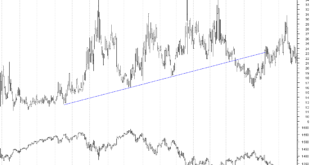The G20 just put out a statement that the world needs to look beyond ultra easy policy for growth. That is code for: “everyman for himself”. Therefore there is no coordinated effort to stem the looming credit collapse or global recession that is arriving soon as had been expected by the market. A large part of the rally we have seen is your typical oversold condition with shorts also covering before the G20 in case they announced a surprise. It is an understatement to say that this is a big disappointment to the market. We have had a 160 point S&P rally since February 11th (~8%). The coordinated cooperation we had since the start of the great recession is over. The geopolitical tensions and mistrust created over the last seven years has made those halcyon days but a memory. Next week should be very interesting.
Reuters Saturday February 27th, 2016 11:50 AM EST
The world’s top economies declared on Saturday that they need to look beyond ultra-low interest rates and printing money to shake the global economy out of its torpor, while renewing their focus on structural reform to spark activity.
A communique from the Group of 20 (G20) finance ministers and central bankers flagged a series of risks to world growth, including volatile capital flows, a sharp fall in commodity prices and the potential “shock” of a British exit from the EU.
“The global recovery continues, but it remains uneven and falls short of our ambition for strong, sustainable and balanced growth,” said the communique, issued at the end of a two-day meeting in Shanghai.
“Monetary policies will continue to support economic activity and ensure price stability … but monetary policy alone cannot lead to balanced growth.”
Faltering growth and market turbulence have exacerbated policy frictions between major economies in recent months, and the statement also noted concerns over escalating geopolitical tensions and Europe’s refugee crisis.
The reference to “Brexit” had not been included in earlier versions of the text, according a senior official who had seen various drafts, but was added after British officials pressed for it. Britons will vote in June 23 referendum on whether to remain in the European Union.
“Our view is that it’s in the national security and economic security of the United Kingdom, of Europe and of the United States for the United Kingdom to stay in the European Union,” U.S. Treasury Secretary Jack Lew said after the meeting.
VOLATILITY VS FUNDAMENTALS
The G20 ministers agreed to use “all policy tools – monetary, fiscal and structural – individually and collectively” to reach the group’s economic goals.
Christine Lagarde, managing director of the International Monetary Fund, said she sensed renewed urgency among the group’s members for collective action, warning that without it there was a risk that the recovery could derail.
Finance chiefs had agreed that “the magnitude of recent market volatility has not reflected the underlying fundamentals of the global economy”, the communique draft said.
To pep up the global economy, faster progress on structural reforms “should bolster potential growth in the medium term and make our economies more innovative, flexible and resilient”, it said.
“We are committed to further enhancing the structural reform agenda,” it added.
Divisions have emerged among major economies over the reliance on debt to drive growth and the use of negative interest rates by some central banks, such as in Japan.
Germany had made it clear it was not keen on new stimulus, with Finance Minister Wolfgang Schaeuble saying on Friday the debt-financed growth model had reached its limits.
“It is even causing new problems, raising debt, causing bubbles and excessive risk taking, zombifying the economy,” he said.
The G20, which spans major industrialized economies such as the United States and Japan to the emerging giants of China and Brazil and smaller economies such as Indonesia and Turkey, reiterated in the communique a commitment to refrain from targeting exchange rates for competitive purposes, including through devaluations.
They pledged to “consult closely” on foreign exchange markets.
The world’s top economies declared on Saturday that they need to look beyond ultra-low interest rates and printing money to shake the global economy out of its torpor, while renewing their focus on structural reform to spark activity.
A communique from the Group of 20 (G20) finance ministers and central bankers flagged a series of risks to world growth, including volatile capital flows, a sharp fall in commodity prices and the potential “shock” of a British exit from the EU.
“The global recovery continues, but it remains uneven and falls short of our ambition for strong, sustainable and balanced growth,” said the communique, issued at the end of a two-day meeting in Shanghai.
“Monetary policies will continue to support economic activity and ensure price stability … but monetary policy alone cannot lead to balanced growth.”
Faltering growth and market turbulence have exacerbated policy frictions between major economies in recent months, and the statement also noted concerns over escalating geopolitical tensions and Europe’s refugee crisis.
The reference to “Brexit” had not been included in earlier versions of the text, according a senior official who had seen various drafts, but was added after British officials pressed for it. Britons will vote in June 23 referendum on whether to remain in the European Union.
“Our view is that it’s in the national security and economic security of the United Kingdom, of Europe and of the United States for the United Kingdom to stay in the European Union,” U.S. Treasury Secretary Jack Lew said after the meeting.
VOLATILITY VS FUNDAMENTALS
The G20 ministers agreed to use “all policy tools – monetary, fiscal and structural – individually and collectively” to reach the group’s economic goals.
Christine Lagarde, managing director of the International Monetary Fund, said she sensed renewed urgency among the group’s members for collective action, warning that without it there was a risk that the recovery could derail.
But there was no plan for specific coordinated stimulus spending to spark activity, as some investo had been hoping after markets nosedived at the start of 2016. Over the course of the two-day meeting in Shanghai comments by policymakers made clear the divergence of views on the way forward.
Finance chiefs had agreed that “the magnitude of recent market volatility has not reflected the underlying fundamentals of the global economy”, the communique draft said.
To pep up the global economy, faster progress on structural reforms “should bolster potential growth in the medium term and make our economies more innovative, flexible and resilient”, it said.
“We are committed to further enhancing the structural reform agenda,” it added.
Divisions have emerged among major economies over the reliance on debt to drive growth and the use of negative interest rates by some central banks, such as in Japan.
Germany had made it clear it was not keen on new stimulus, with Finance Minister Wolfgang Schaeuble saying on Friday the debt-financed growth model had reached its limits.
“It is even causing new problems, raising debt, causing bubbles and excessive risk taking, zombifying the economy,” he said.
The G20, which spans major industrialized economies such as the United States and Japan to the emerging giants of China and Brazil and smaller economies such as Indonesia and Turkey, reiterated in the communique a commitment to refrain from targeting exchange rates for competitive purposes, including through devaluations.
They pledged to “consult closely” on foreign exchange markets.
If you enjoy the content at iBankCoin, please follow us on Twitter






And in the other corner stands Warren Buffett..
I’ve about given up hope for a real crash in the next month or two.. Buybacks are in full force causing this infuriating melt up. What a great fucking plan. Let’s hollow out all our businesses and saddle them with debt so our executive stock options are in the money temporarily. I can’t wait until they don’t work anymore and the whole thing blows up in their faces.
Bearraid – why so negative?
Just read 17% of Italian loans are bad debt.Now I’m sure there
is collateral backing these loans but man 17% of all loans—
really.
Averaged up my short position in nikkei futures all week long